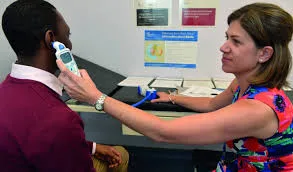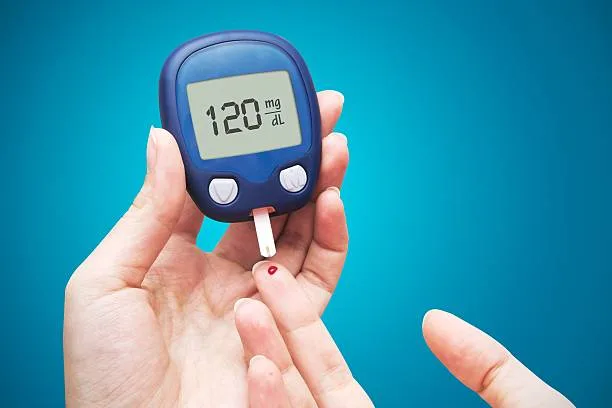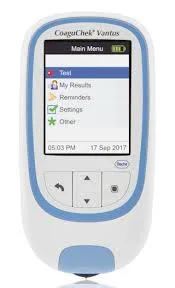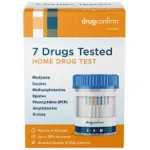“Point-of-Care Testing Unleashed”
my lovely readers,
In the fast-paced realm of healthcare, point-of-care testing (POCT) has emerged as a transformative approach, revolutionizing clinical diagnostic procedures.
This innovative approach brings testing closer to the patient, providing rapid and timely results that significantly impact decision-making and patient outcomes.

Understanding Point of Care Testing
What is point-of-care testing?
Point-of-care testing refers to diagnostic procedures performed outside of a traditional laboratory setting. Unlike traditional testing, which often involves sending samples to a centralized lab and waiting for results, POCT provides immediate and actionable insights at the patient’s bedside or clinical setting.
Faster results for informed decisions
The specialty of POCT lies in its ability to produce rapid results, often within minutes. This is in immediate emergencies or when timely decision-making is most important. Healthcare providers can quickly assess a patient’s condition, enabling quick intervention and personalized treatment plans.
would you like to read (https://drreactivate.com/histoplasmosis-in-pakistan/
Advantages of Point of Care Testing
Better patient experience
One of the primary benefits of POCT is its positive impact on the patient experience. By reducing wait times for test results, patients experience less anxiety and uncertainty. Prompt diagnosis also facilitates faster initiation of treatment, which contributes to overall patient satisfaction.
Key Technologies in Point of Care Testing

Rapid diagnostic test
These tests offer immediate results, making them invaluable in emergencies. Rapid diagnostic tests provide on-the-spot answers from pregnancy tests to infectious disease screening.
Portable Analyzer
Compact and user-friendly, portable analyzers bring the laboratory to the patient. They facilitate real-time diagnosis, enabling timely interventions and personalized treatment plans.
Lab-on-a-chip technology
Minimizing laboratory processes on a tiny chip has streamlined the testing process. Lab-on-a-chip technology increases efficiency without compromising accuracy.
Streamlined workflow for healthcare providers
POCT streamlines workflow for healthcare providers, improving operational efficiency. With the ability to perform on-site testing, medical professionals can make diagnoses sooner, improving patient management and resource utilization.
would you like to read: https://drreactivate.com/knee-pain-prevention-in-old-age/ge/
Cost efficiency in healthcare delivery
The efficiency of point-of-care testing translates into cost savings in healthcare delivery. Reduced hospital stays, timely interventions, and targeted therapies contribute to a more economical healthcare system, benefiting providers and patients.
Point-of-care testing applications.
Point-of-care testing (POCT) encompasses a variety of diagnostic tests that are conducted at or near the site of patient care, providing rapid results for quick decision-making. Some common tests included in Point-of-Care Testing are:
Rapid Diagnostic Tests (RDTs):
These tests are designed to provide fast results, often within minutes, and are commonly used for infectious disease screening, such as rapid HIV tests.

Blood Glucose Testing:
Point-of-care devices are frequently employed for quick and convenient blood glucose monitoring, essential for managing conditions like diabetes.
Pregnancy Testing:
One of the earliest applications of POCT, pregnancy tests provide immediate results, enabling prompt healthcare decisions.

Infectious Disease Screening:
POCT is widely utilized to rapidly detect infectious diseases, including influenza, strep throat, and, notably, in recent times, COVID-19.
Cardiac Marker Testing:
POCT devices can assess cardiac markers like troponin to rapidly evaluate heart-related conditions in emergencies.
Coagulation Monitoring:
Testing for clotting factors and international normalized ratio (INR) at the point of care is crucial for managing patients on anticoagulant therapy.

Cholesterol Testing:
Immediate cholesterol level assessments aid in cardiovascular risk evaluation, enabling timely interventions.
Urinalysis:
Point-of-care urine tests are commonly used for the rapid screening of conditions such as urinary tract infections and kidney disorders.
Hematology Testing:
Rapid assessment of blood cell counts and hemoglobin levels at the point of care is essential for quick diagnosis and treatment decisions.

Drug Testing:
POCT devices are employed for on-site drug testing, particularly in workplaces or rehabilitation centers.
It’s important to note that the scope of Point-of-Care Testing continues to expand, and ongoing advancements in technology contribute to the development of new tests and applications. The versatility of POCT makes it a valuable tool in various healthcare settings for immediate and efficient diagnostic solutions.
Management of infectious disease
POCT plays an important role in the management of infectious diseases. Rapid testing for conditions such as influenza, streptococcus, and COVID-19 enables immediate isolation and treatment, preventing the spread of infection in healthcare facilities and communities.

Chronic disease surveillance
For patients with chronic conditions, such as diabetes or cardiovascular disease, regular monitoring is essential. POCT devices empower individuals and healthcare providers to easily monitor vital markers, promote proactive management, and prevent complications.
Emergency medicine
In emergency medicine, every second counts. Point-of-care testing facilitates rapid assessment of critical parameters such as blood gases, cardiac markers, and coagulation profiles, guiding prompt interventions and improving patient outcomes.
Overcoming Challenges in Point-of-Care Testing

Quality Assurance
While the speed of POCT is undoubtedly valuable, maintaining strict quality assurance standards is paramount. Ensuring the accuracy and reliability of on-site tests is an ongoing challenge that requires continued technological advancements and strict regulatory oversight.
Integration with Electronic Health Records (EHR).
Integrating POCT results with electronic health records is critical to comprehensive patient care. Seamless communication between POCT devices and EHR systems remains a focus to enhance data continuity and facilitate informed decision-making.
The future view of point-of-care testing
As technology advances, the future of POCT holds even more promise. Innovations in miniaturization, connectivity, and artificial intelligence will further enhance point-of-care testing capabilities, contributing to a more patient-centric and efficient healthcare landscape.
conclusion
Finally, point-of-care testing is at the forefront of transforming healthcare delivery. Its ability to deliver rapid, on-the-spot results improves patient experiences, streamlines workflow for healthcare providers, and contributes to cost efficiency in the healthcare system. Is. As we navigate the future, embracing the potential of POCT i
What is Point-of-Care Testing (POCT)?
Point-of-care testing refers to medical diagnostic testing conducted near the patient, providing rapid results without the need for sample transportation to a centralized laboratory.
How does POCT differ from traditional lab testing?
Unlike traditional lab testing, POCT allows for immediate on-site analysis, eliminating the time-consuming process of sending samples to a central lab. This swift turnaround time enables quicker decision-making in patient care.
What types of tests can be conducted using POCT?

POCT covers a wide range of tests, including blood glucose monitoring, pregnancy tests, infectious disease screenings, and more. The versatility of POCT extends to various medical disciplines.
What are the advantages of POCT?
The key advantages of POCT include rapid results, enhanced patient satisfaction, quicker treatment decisions, and reduced reliance on centralized laboratories. POCT also proves invaluable in emergency and point-of-emergency situations.
Are POCT results as accurate as traditional lab results?
While POCT devices are designed for accuracy, it’s essential to note that certain complex tests may still require confirmation through traditional lab methods. However, advancements in technology continue to improve the accuracy of POCT results.
How is POCT contributing to personalized medicine?
POCT plays a pivotal role in personalized medicine by enabling real-time diagnostics tailored to individual patient needs. This personalized approach allows for more targeted and effective treatment strategies.
Is POCT widely adopted in healthcare practices?
Yes, POCT is increasingly gaining popularity in various healthcare settings, including clinics, emergency departments, and primary care offices. Its widespread adoption is driven by the need for faster, more accessible diagnostic information.
How is data management handled in POCT?
Modern POCT systems often integrate with electronic health records (EHRs) to streamline data management. This integration ensures that test results are seamlessly incorporated into the patient’s overall health record for comprehensive care.
What challenges does POCT face in healthcare?
Challenges include the need for rigorous quality control, proper training of healthcare professionals, and addressing potential discrepancies in results compared to traditional lab methods. Ongoing advancements aim to address these challenges and further optimize POCT.
What is the future outlook for POCT in healthcare?
The future of POCT looks promising, with ongoing innovations in technology and increased integration into routine healthcare practices. As advancements continue, POCT is expected to play an even more significant role in improving patient outcomes and healthcare efficiency.


I have been browsing on-line more than 3 hours today, yet I by
no means found any attention-grabbing article like yours. It’s pretty worth enough for me.
In my opinion, if all site owners and bloggers made good content material as you
did, the web shall be a lot more helpful than ever before.
Thank you for your kind words! I’m glad you enjoyed the content. Your positive feedback means a lot to me.